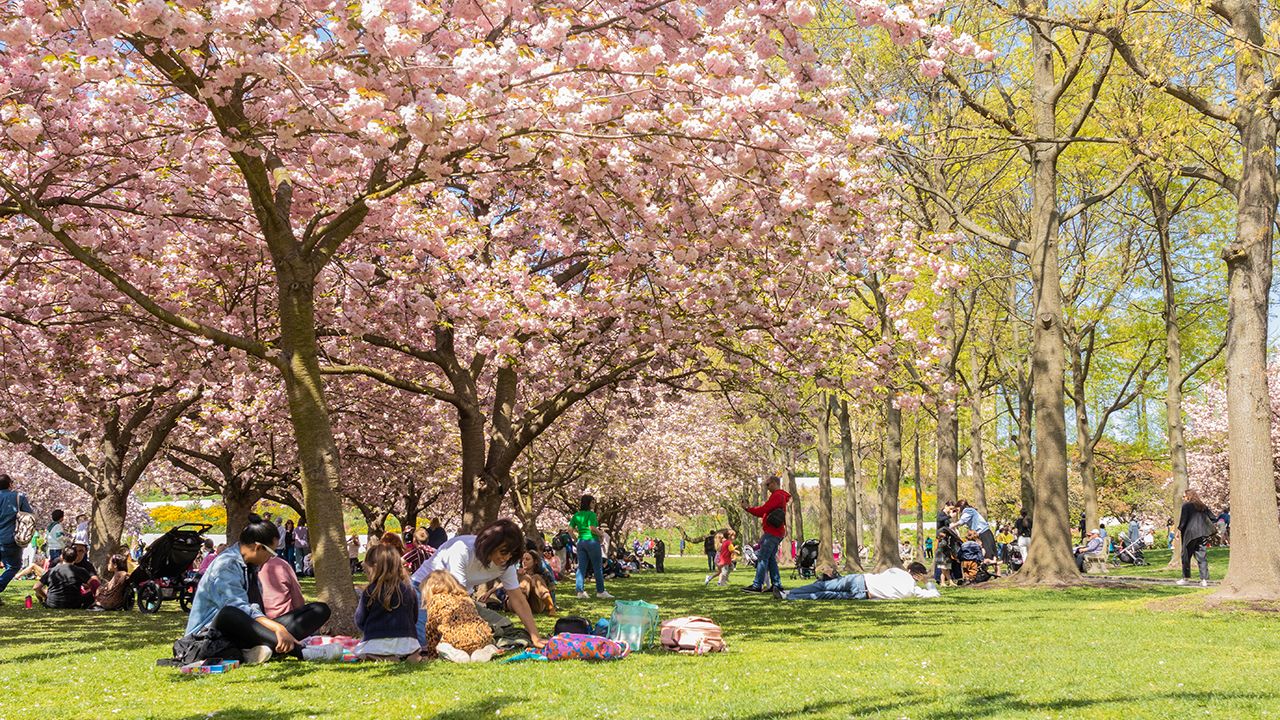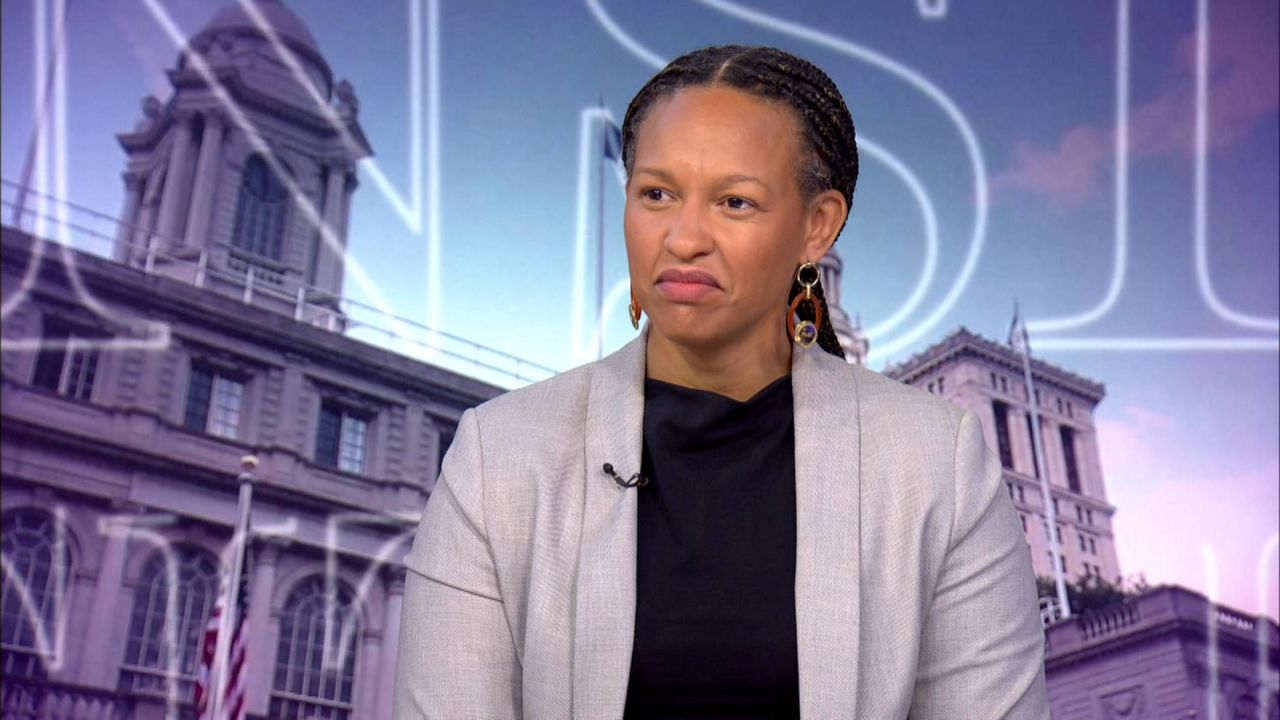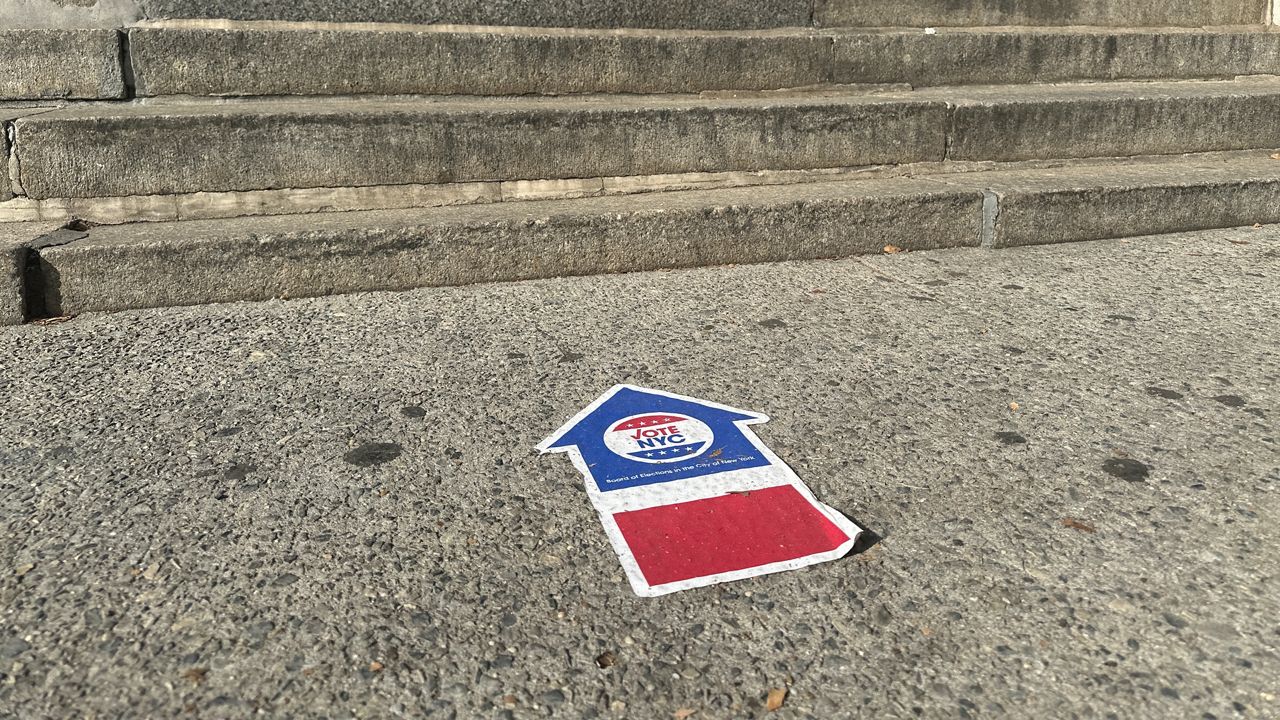The Israel-Hamas war continues eight months on, and since the conflict began, NY1 has profiled New Yorkers who have close ties to both sides of the conflict in the Middle East.
For part one of a two-part series, NY1 sat down with some of the student leaders in the pro-Palestinian movement — to talk about their backgrounds and what’s driving their passion about the conflict.
What You Need To Know
- In recent months, Pro-Palestinian protests swept campuses here in the city and across the country. NY1 sat down with the lead organizers at NYU and City College to learn more about them and why they say they'll keep demonstrating
- Language has been at the center of the protests, including the term "genocide," and how some of the rhetoric at protests at NYU and elsewhere has made some Jewish students feel unsafe on campuses
- The International Criminal Court’s top prosecutor has stopped short of calling what’s happening in Gaza a “genocide," saying it’s mass killing
- The death toll now stands at more than 37,000 Palestinians killed, according to the Hamas-run Gaza Health Ministry
In recent months, Pro-Palestinian demonstrations swept campuses here in the city and across the country, as protesters wanted to make their voices heard. Now, there’s no sign of the pro-Palestinian encampment that once stood at NYU.
The university built a wall to stop students from building another encampment.
“To see that there was a physical wall, it was just very indicative of the way the university was operating, that they were not trying to talk to students, not trying to understand that they are protesting,” Reham Perry said.
Perry, 23, is one of the main student organizers at NYU. Pro-Palestinian demonstrators like Perry say what they’re protesting is the death toll in Gaza. Perry is half-Palestinian and half-Native American. She says her roots give her strength.
“It’s what teaches me so much about healing, so much about empathy,” Perry said.
Perry said she has lost family members in the Gaza conflict. More than 37,000 Palestinians have been killed, according to the Hamas-run Gaza Health Ministry.
“I can’t wrap my head around the fact that we live in a world where 40,000 people can be killed, and that it then becomes a person risking their livelihood, or risking their education, for speaking up against that,” Perry said.
However, many Jewish students have said the rhetoric at protests at NYU and elsewhere has made them feel unsafe on campuses.
One sign, held by a Columbia protester in front of Jewish students, read “Al Qasam’s next targets,” referring to Hamas’ military wing. Some have also called Israel’s war against Hamas “genocide” against the Palestinians. Perry said it’s not about religion.
“My issue is not with people that are Jewish — they’re great, my issue is with an occupation. My issue is with a genocide, you know,” Perry said.
That term has been at the center of many of the protests. The United Nations defines genocide as “a crime committed with the intent to destroy a national, ethnic, racial or religious group, in whole or in part.”
The International Criminal Court’s top prosecutor has stopped short of calling what’s happening in Gaza a “genocide,” claiming it’s a “mass killing.” The Israeli government has denied the charge and said the military takes precaution to avoid civilian casualties, while accusing Hamas of hiding among civilians.
Hadeeqa Arzoo Malik, 20, is a rising junior at City College. She’s also a native New Yorker of Pakistani heritage and one of the leaders of the pro-Palestinian protests at her school.
“This feeling of unsafety that I’m hearing about, I think a lot of it, from the conversations that I’ve had, has been rooted in this miseducation that anti-Zionism is antisemitism when it’s not,” Malik said.
However, many Jews see anti-Zionism as antisemitism. Malik refused to condemn the Oct. 7 attacks, saying Hamas’ killing of roughly 1,200 people and taking of 250 hostages, including children, was the “uprising of a resistance” toward what she calls “colonization.” The U.N. said “it was a catalogue of the most extreme and inhumane forms of killing, torture and other horrors.”
“What we want right now is an end to the genocide, and a liberated Palestine, from the river to the sea, and that essentially inherently requires the end of Zionism,” Malik said.
When school comes back, the protesters promise to return as well, if there’s no resolution to the conflict.
“A lot of people have said to me, ‘NYU is an age-old institution, they’re not going to change their ways,’ and I say to them, why not? They divested for climate change, they divested for South African apartheid, they divested for Sudan,” Perry said.
NY1 repeatedly reached out to the student leader at NYU after our initial interview, because we wanted to better understand her feelings about Hamas’ Oct. 7 attack on Israel. She did not get back to us.
On Thursday night, NY1 speaks with a New York City family who has a loved one serving in the IDF, discussing what they’re going through, how they feel about the pro-Palestinian protests and what hope they have for peace for both sides.








_PKG_Hudson_Yards_Zoning_Hearing_CG)
